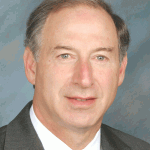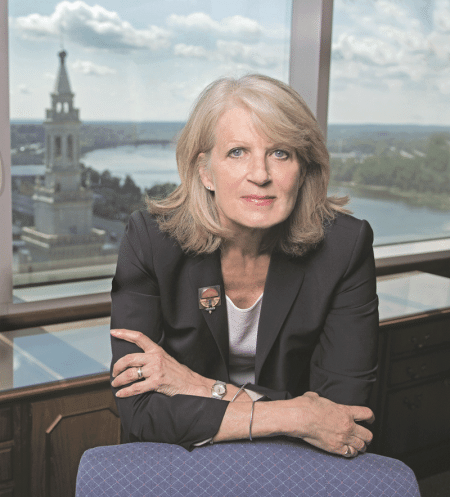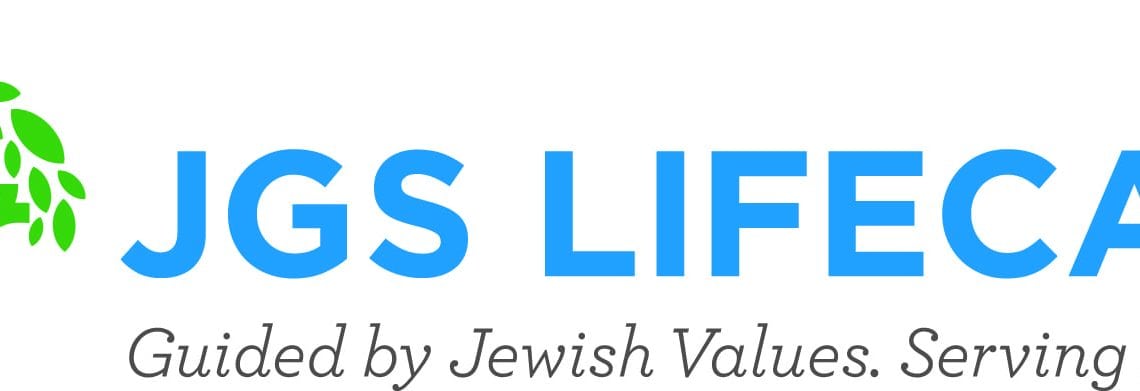Informed Decisions Are Critical When Claiming Benefits
By HYMAN G. DARLING, Esq.
Years ago, it was standard practice to claim Social Security benefits at age 65. Most people retired about that age, and Social Security was available to help with retirement, based on the amounts paid in over the course of an individual’s working life.Now, it is a major financial decision as to when to claim your benefits, when to collect your benefits, and how to maximize income for both the claimant and the claimant’s spouse.
Initially, it should be noted that Social Security is essentially a pension to be received based on the amount of money and years worked by an individual. A person receives a monthly benefit for life and, usually, a survivor benefit for a spouse and sometimes for children who are either disabled or under the age of 18. Naturally, the longer a person lives, the longer payments will continue.
It is estimated that, if a person lives 10 years after initiating receipt of their Social Security benefits, they will get their money back. Those who live 20 years receive their money back plus interest. After 20 years, a person not only receives their payments into the system plus interest, but also receives money derived from others who have paid into the system.
Age 62 is the earliest the benefit may be started. For those born before 1954, full retirement age is 66. In order to determine the full retirement age for those born after 1954, add two months to age 66 for each year through 1959. For those born in 1960 or after, the full retirement age is 67.
For single people making this decision, some factors to contemplate include health, tax situation, and intentions for continuing work or to retire. In view of these factors, one may estimate what a monthly payment might be, and can make a more informed decision as to whether to take the benefit early or at full retirement age.
For the vast majority of Americans, once income begins, the amount is locked in and will not change, with the exception of cost-of-living increases. It is also important to consider that, if benefits are claimed earlier versus later, then the base amount is lower, and subsequent cost-of-living increases are based on that lower figure. Over the course of many years, this could make a significant difference. In 2014, the cost-of-living increase was 1.7%, and this year the increase is 1.5%.
To calculate early benefits, subtract approximately 8% (from what the full retirement-age benefit would have been) per year for each year prior to full retirement age. While it will take many years to make up the difference, it is important to consider what the overall benefit will be over the course of 10 to 20 years, and whether a person needs to rely upon Social Security as a main source of retirement income.
Naturally, health and financial status make a significant difference. For those in poor health, it may be better to claim the income early, so that benefits will be received for the longest possible period, albeit at a lower amount than if the income was delayed. Similarly, if a person really needs the money sooner, they should possibly claim it sooner, although they will take a discount on the amount. This penalty does last forever. In most cases, there are no benefits prior to age 62.
If a person is fortunate enough to have other sources of income, such as IRA benefits, a pension, or possibly other unearned income, the Social Security benefit may not be needed immediately. If in good health, delaying the income claim can ensure a significantly higher monthly benefit.
For those still working who also claim Social Security benefits prior to full retirement age, income is subject to the ‘earnings test.’ This formula reduces a person’s Social Security benefits by $1 for every $2 of earnings in excess of $15,720 (the amount for 2015). Once full retirement age is attained, then the benefit is recalculated to omit the months in which benefits were withheld.
The decision about when to start income becomes even more complex for married people. When a person claims income on their own record, this has an effect on the spouse. The spouse must be at least 62 in order to claim benefits. In most cases, if the older spouse decides to claim benefits at a later age, such as 70, then upon the death of the older spouse, the most the younger spouse can receive is 50% of this amount.
Of course, the younger spouse is also subject to his or her earnings test and the same penalties as the older spouse who is claiming the primary benefit. The numbers must be reviewed to determine what an older spouse’s earnings record is, with a decision as to when to claim his or her benefits, whether early or at full retirement age. The younger spouse, however, is not permitted to claim the spousal benefit and delay his or her own benefits.
One of the popular options is known as the ‘file-and-suspend’ method. In this situation, when the higher-earning spouse requests benefits at full retirement age, they can then request that the benefits be suspended. This means that the lower-earning spouse is able to claim benefits while the higher-earning spouse delays their benefit until age 70. This cannot be done until the higher-earning spouse reaches full retirement age.
In this situation, if the higher-earning spouse predeceases the lower-earning spouse, then the lower-earning spouse does inherit the age 70 claiming decision, thus providing a significantly larger benefit for the living spouse. Of course, age differences, health issues, and necessary income are all issues which should be reviewed before making these decisions.
Another strategy is to ‘gamble’ the decision. It would be nice to have the proverbial crystal ball and be able to know when each spouse will die because that would allow the optimum decision to be made in advance. Without knowing what will occur, however, an option would be to wait until both spouses reach 70 to claim their highest possible benefits. This will allow both to receive a larger amount, but the spouse with the lower earnings (likely the younger spouse) may take their amount earlier, thus allowing the higher-earning spouse to delay and postpone benefits until age 70. Again, this is a gamble, but it allows both spouses to maximize the amount so long as they live a longer period of time.
Another choice is to claim some income now, and claim more later. This is what is known as a ‘restricted claim,’ which means that a person who is claiming the spouse’s benefits postpones their own benefits until age 70. In order to take advantage of this option, one spouse must have filed for benefits, or filed and suspended.
In this situation, for instance, if a husband’s benefit at full retirement age is greater than his wife’s, and he is at least one month older than his wife, at age 66 the wife could file for benefits. Because she files and the husband has already attained full retirement age, he can also claim a portion of his wife’s benefit until he turns 70. At age 70, his check is increased to what his benefit would have been, plus an increase for waiting. It also provides him with a larger base for cost-of-living adjustments (the annual increase as determined by the Social Security Administration).
Some significant appeal in this case lies in the fact that, if the husband dies first, the wife inherits his age-70 claiming decision. In this situation, both spouses must have reached full retirement age to utilize this option, and it may be they cannot afford, or don’t want to, wait until both have reached the age of 66.
Divorce is another issue that can complicate Social Security calculations. If the marriage was longer than 10 years, the divorce occurred more than two years prior, and the spouses remain unmarried, then the lower-earning person is entitled to claim the benefits of the ex-spouse. If a person had multiple marriages in the past 10 years, then both ex-spouses may claim benefits without adversely affecting the benefits of the other.
When claiming in this situation, it is important that Social Security numbers for all individuals, including all former spouses, are utilized, so that the Social Security Administration can determine which person to claim as the highest wage earner. One should also bring a marriage certificate and divorce decree to the Social Security office when claiming for benefits of an ex-spouse.
An ironic provision in the law also provides that, if both ex-spouses never remarried, they can each claim spousal benefits while delaying their own benefits until age 70. Married spouses cannot do this, but unmarried former spouses have this opportunity. For instance, if a divorced couple determine that the husband’s benefit at age 62 would have been a lower amount, then his ex-spouse would receive only 82.5% of his benefit, whereas if he had waited until 70, his ex-spouse’s benefit would be approximately 132% of his original benefit. With multiple marriages, the decisions become more difficult, but provide additional opportunities to receive greater benefits.
Of course, when one spouse dies, a surviving spouse should check with Social Security to determine whether there are any benefits available for the survivor. It is sometimes possible to claim benefits sooner rather than later, as well as provide for minor or disabled children.
There are many planning opportunities for a person to claim the maximum benefits over life. All strategies and decisions should be considered prior to retirement, and if a person is considering electing to start benefits, they should check with the Social Security Administration several months before retirement age to determine options, so that they will have sufficient time to make intelligent decisions.
Each situation must be reviewed independently, and while the Social Security Administration does have a website that provides information and calculations (www.ssa.gov), it may be helpful in some cases to meet with a Social Security representative to ensure understanding of all options. There are private companies that provide independent evaluations (for a fee, of course), but the cost of such an advisor may be recouped in a short period of time if the advisor secures a greater financial benefit.
Between Medicare costs, prescription drugs, and housing expenses, a person’s Social Security may be their largest source of income. As stated earlier, life is a gamble. Even so, it is important to make intelligent decisions rather than merely accepting the amount that initially seems to be higher. Many benefit plans are irrevocable, so informed choices are critical when claiming Social Security benefits.
Attorney Hyman G. Darling is chair of the Estate Planning and Elder Law departments at Bacon Wilson, P.C. His areas of expertise include all areas of estate planning, probate, and elder law. He is a frequent lecturer on various estate-planning and elder-law topics; (413) 781-0560; [email protected]




















